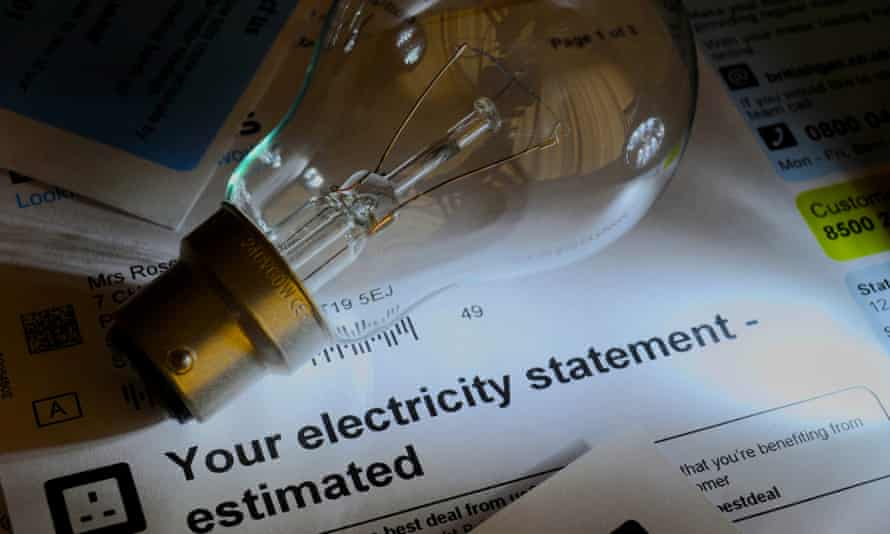Britain’s energy crisis has been years in the making, thanks to the Conservatives
Since 2015 policies to insulate Britain’s homes and diversify our energy supply have stalled
- Ed Davey is leader of the Liberal Democrats and former energy and climate change secretary

Rocketing heating bills owing to dramatic gas price rises are just the latest chapter in Britain’s mounting cost of living crisis. From food price-hikes to increasing transport costs, this new bout of inflation is hitting essential goods – and that means the poorest people will be hit the hardest. So no one should be surprised that Boris Johnson has dismissed these problems. He wants us to think it’s all a global problem, with nothing unique to the UK. And he wants us to think it will all be over quickly.
Of course, the reality is somewhat different. While rising gas prices are a global phenomenon, British consumers will be hit hard because energy policy in the last six years has been an unmitigated disaster – with fewer homes being insulated and with measures for diversifying the UK away from overdependence on gas needlessly stalled. Within the last 18 months alone, the Conservatives have launched, mismanaged and then scrapped a Green Home Grant scheme; their flagship policy to help people cut their heating bills failed totally, and nothing has been put in its place.
Johnson’s botched Brexit deal is unquestionably a UK-only phenomenon and a major cause of rising food prices. The shortages of lorry drivers, farm workers and staff in the food processing sector – from chicken processing units to abattoirs – are adding to these pressures.
Despite the lowest paid being among the worst hit by these Conservative policy failures, Johnson seems determined to make it even worse for them – by slashing support and raising taxes for the low paid. The Conservatives’ cut to universal credit will plunge an estimated more than 800,000 people into poverty. On top of that, their unfair and manifesto-breaking increase to national insurance will disproportionately hit the young and those on low and middle incomes.
Our carers, nurses and other vital frontline workers sacrificed so much during the pandemic to keep the country going. Many of them are on low pay. A NHS healthcare assistant, for instance, is likely to be on universal credit, and the combined impact of the cut and NI rise will mean a GBP940 hit to their income, more than wiping out the 3% pay rise announced earlier this year.
And that’s before rising prices make it even worse. Last month’s rise in year-on-year inflation was 3% – with the monthly rise of 0.6% in August being the largest increase ever recorded using the Treasury’s favourite CPIH measure of inflation. The timing of this new cost-of-living crisis could not have been worse. Millions of families already struggling will now face rising energy bills as we enter the colder months.
As secretary of state for energy and climate change, I was proud of the role the Liberal Democrats played in weaning the UK off both coal and gas – for instance, when we nearly quadrupled the UK’s renewable energy between 2010 and 2015. Our policies led to massive investment in onshore and offshore wind and solar, and brought in new standards for zero-carbon housing and tough regulations on energy firms to force them to promote home insulation to cut customers’ heating bills and tackle fuel poverty. From promoting district heat networks to pushing National Grid and Norway’s StattNet to build the world’s longest subsea cable to link the UK to cheap hydropower, we were developing the low-carbon energy infrastructure to tackle climate change and improve the UK’s energy security.
Most of that stopped under the Conservatives after 2015. They privatised our Green Investment Bank, scrapped new homes standards, stopped onshore wind, damaged our solar industry and failed to take any serious new initiatives. Indeed, energy policy has effectively been stalled for six years.
And guess what? Tory climate sceptic backbenchers and their backers are now arguing that the current energy crisis shows why we must scrap green levies and subsidies for the renewables industry. This isn’t just wrong because it would be embarrassing ahead of the forthcoming Glasgow Cop26 summit. It’s factually wrong. Almost all of the renewable power plants built thanks to Liberal Democrat policies are now paying the consumer back: with the wholesale price of power so high because of increased fossil fuel prices, renewables pay back the difference between a higher wholesale market price and the guaranteed price (“the strike price”) in their contract.
The Conservatives’ failure to tackle the cost-of-living crisis is just the latest example of the party taking people for granted. In the Chesham and Amersham byelection, so many lifelong Conservative voters told us that Johnson’s incompetence and lack of decency would cause them to vote for us. They felt taken for granted by the prime minister. A Conservative winter of discontent could yet see that light go on for many of the party’s other former supporters.
-
Ed Davey is leader of the Liberal Democrat party and a former secretary of state for energy and climate change